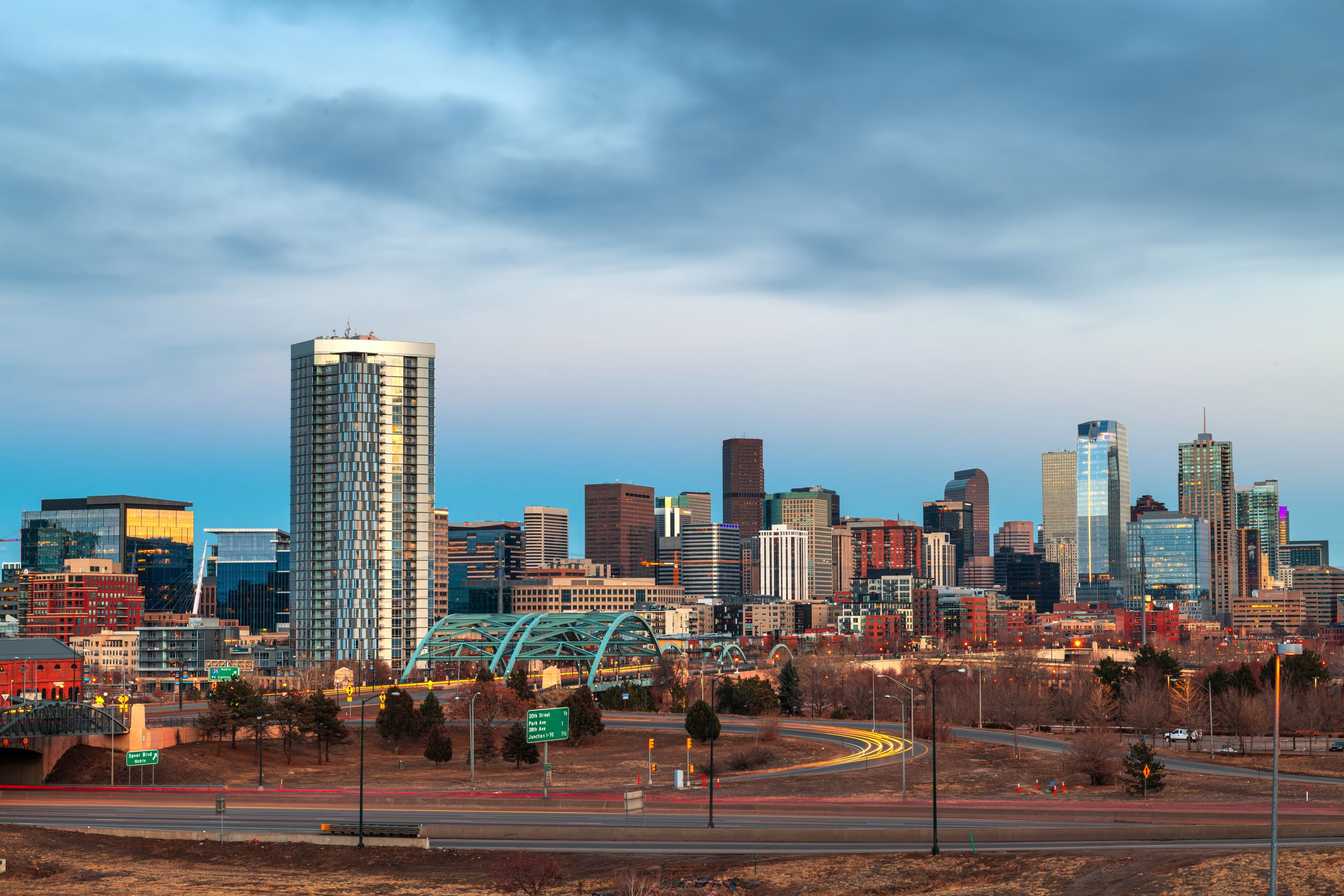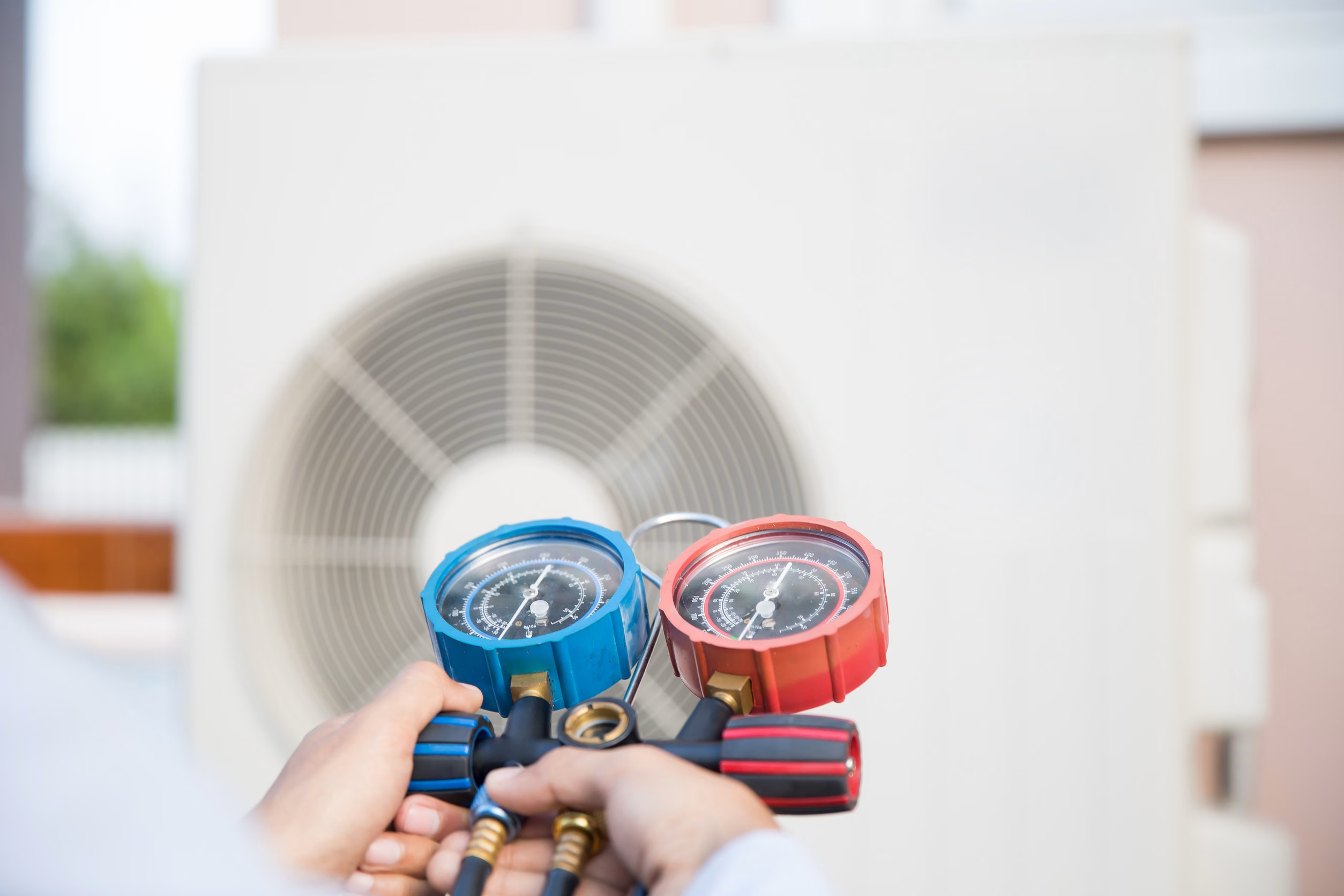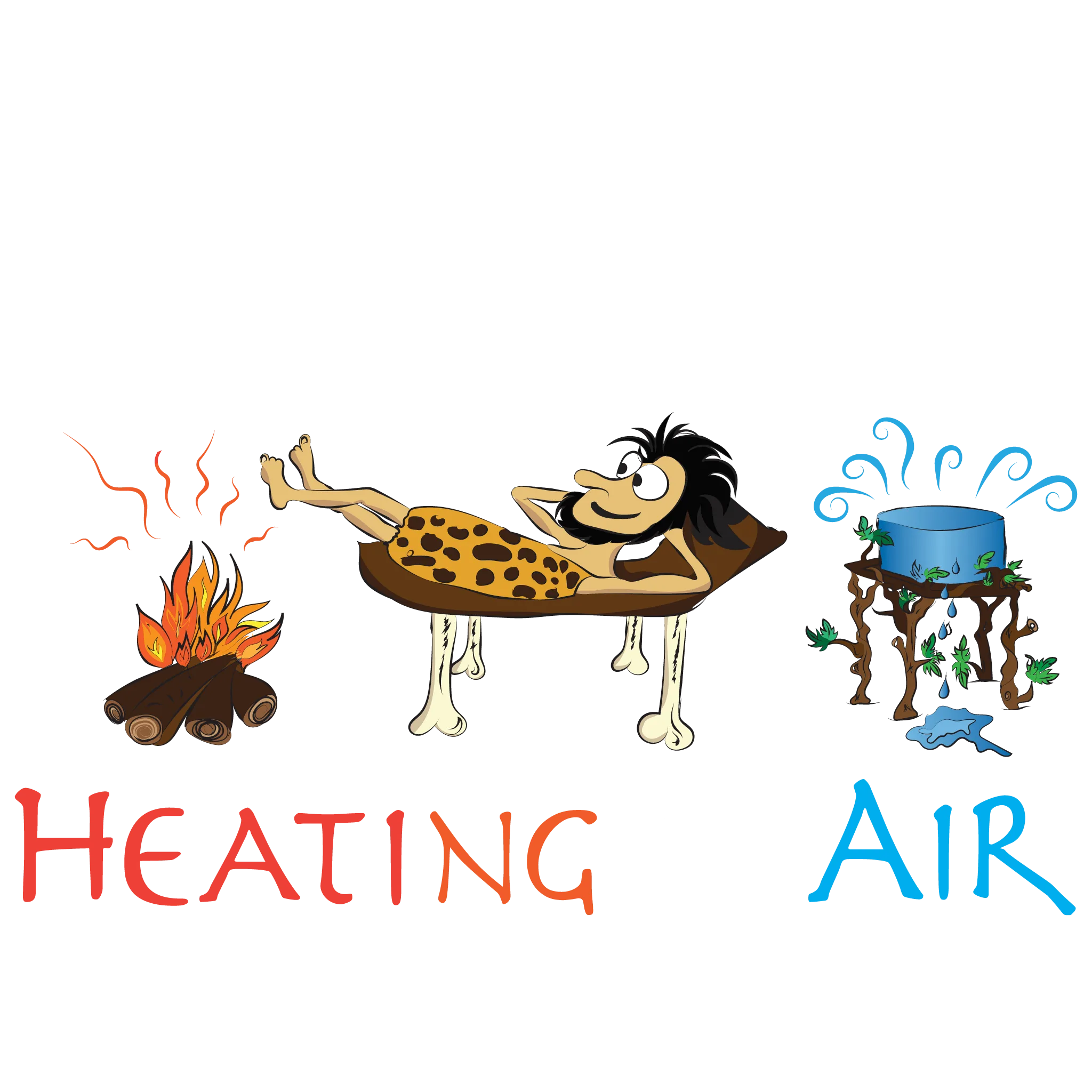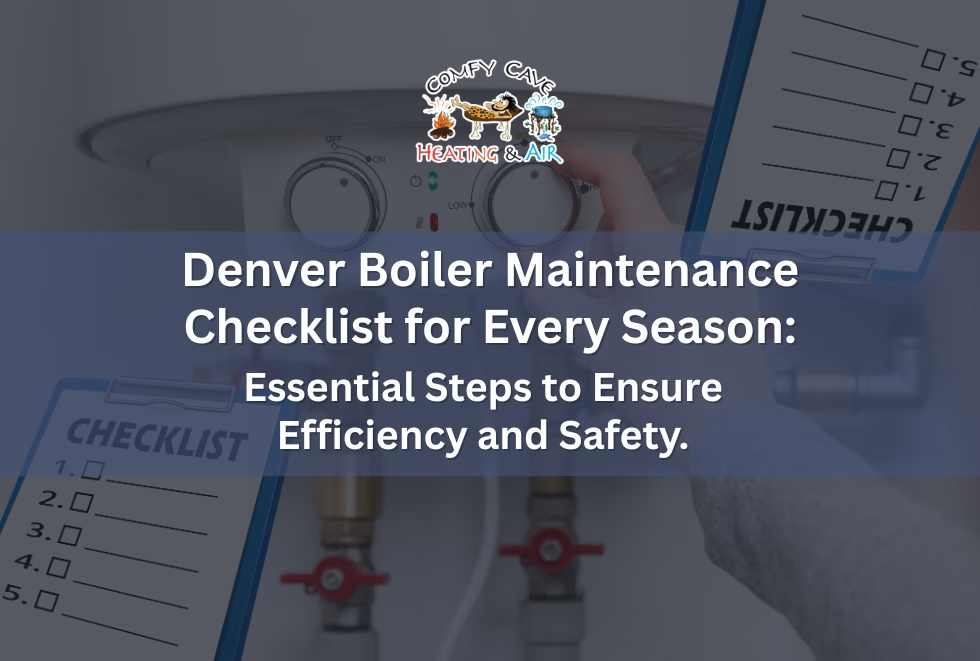Ensuring your boiler runs smoothly through Denver’s extreme winters and warm summers demands a clear, season-by-season maintenance plan. This boiler maintenance checklist for every season in Denver outlines the vital inspections, adjustments, and professional services that keep heating systems efficient, safe, and long-lasting. You’ll discover how altitude and hard water influence performance, a detailed winter-through-fall task list, when homeowners can tackle DIY checks, and why Comfy Cave Heating & Air’s certified technicians deliver unmatched reliability for Denver homeowners and small businesses.
Why Is Seasonal Boiler Maintenance Crucial for Denver Homes and Businesses?

Seasonal boiler maintenance is the proactive process of inspecting, cleaning, and tuning heating systems before usage peaks or dips. Regular service adapts boilers to Denver’s high altitude, mineral-rich water, and fluctuating temperatures, promoting reliable heat and avoiding costly breakdowns. For homeowners and commercial properties, this preventative approach improves energy efficiency, extends equipment lifespan, and safeguards indoor air quality.
How Does Denver’s High Altitude Affect Boiler Performance?
Denver’s elevation reduces oxygen density, which can lead to incomplete combustion and inefficient heat output. Boilers adjusted for altitude optimize fuel-air ratios, ensuring a clean burn and reducing soot buildup inside the heat exchanger. Balancing combustion settings now prevents carbon monoxide risks later and lays the groundwork for addressing water-related scale issues.
The Effects of Denver’s Mile-High Elevation
Denver’s high altitude affects the way heat is transferred, the amount of oxygen available, and the amount of water in the air, which can significantly affect daily life. Water boils at a lower temperature, and there is less oxygen, which can impact how appliances perform.
This source explains how Denver’s altitude impacts various aspects of daily life, including the performance of appliances like water heaters, which is relevant to boiler maintenance.
What Are the Effects of Hard Water on Denver Boilers?
Hard water deposits minerals on heat exchanger surfaces and inside pipes, limiting heat transfer and increasing fuel consumption. Over time, limescale buildup can trigger corrosion and premature component wear. Implementing routine flushes and installing water softening solutions minimizes scale accumulation and protects valves and pumps throughout the year.
How Denver’s Hard Water Affects Your Plumbing
Hard water in Denver contains high levels of minerals, leading to mineral buildup in pipes and scale formation on fixtures. This buildup reduces the efficiency and lifespan of water-using appliances like water heaters.
This source highlights the impact of hard water on plumbing systems and appliances in Denver, which is crucial for understanding boiler maintenance needs.
How Does Seasonal Temperature Variation Influence Boiler Efficiency?
Rapid swings between freezing winter nights and warm days force boilers to cycle frequently, placing extra wear on ignition controls and circulator pumps. Seasonal maintenance adjusts thermostat calibration, inspects cycling patterns, and fine-tunes burner operation so that boilers maintain optimal output without unnecessary start-stop cycles.
What Are the Benefits of Regular Boiler Maintenance in Denver?
- Enhanced Energy Efficiency– Clean burners and tuned controls maximize heat output while reducing fuel costs.
- Extended Equipment Lifespan– Preventative inspections uncover minor issues before they lead to major failures.
- Improved Safety– Testing for leaks and verifying safety controls prevents carbon monoxide concerns.
- Consistent Comfort– Properly balanced radiators and calibrated thermostats deliver even warmth.
Maintaining these advantages throughout the year builds confidence in system reliability before transitioning to the comprehensive seasonal checklist.
What Is the Complete Year-Round Boiler Maintenance Checklist for Denver?
A year-round boiler maintenance program keeps your heating system tuned to Denver’s climate demands. Each season focuses on tasks that address unique environmental stresses, ensuring uninterrupted performance and safety.
What Are the Key Winter Boiler Maintenance Tasks in Denver?
The table below outlines essential winter tasks:
| Task | Specification | Benefit |
| Check Boiler Pressure | 12–15 psi | Prevents low-water shutdowns |
| Inspect for Leaks and Corrosion | Visual and pressure test | Detects seal failures early |
| Bleed Radiators | Release trapped air | Ensures consistent room heating |
| Clear Vents and Flues of Snow and Ice | Remove obstructions | Maintains proper exhaust flow |
| Test Carbon Monoxide Detector | Functional alarm test | Verifies occupant safety |
| Monitor Thermostat Accuracy | Compare set vs. reading | Optimizes fuel usage |
Winter checks guard against freeze damage and carbon monoxide exposure, setting the stage for spring cleanup and professional tuning.
What Should Be Included in a Spring Boiler Tune-Up in Denver?
Spring tune-ups reset your boiler after heavy winter use, restoring efficiency and preparing for low-demand months.
- Visually inspect all external components for wear and debris.
- Clean the boiler exterior and surrounding area to prevent dust buildup.
- Check and clear the condensate drain line on condensing boilers.
- Schedule a professional spring tune-up to adjust combustion settings and test safety controls.
Spring servicing removes winter-season residue and primes the system for preventive checks during summer’s idle period.
What Are the Essential Summer Boiler Check-Up Steps?
Even during low usage, boilers benefit from brief operational tests and inspections to prevent mechanical seizing.
- Run the boiler for 10–15 minutes to lubricate pumps and circulators.
- Visually inspect pipes and valves for insulation integrity and signs of leaks.
- Verify warranty status and service contract details ahead of the next heating season.
These summer steps avoid component stagnation and ensure your boiler is ready for fall load adjustments.
How to Prepare Your Boiler for Fall in Denver?
Fall preparations bridge summer downtime and winter peak demand through safety tests and cleaning.
| Preparation Task | Focus | Outcome |
| Test Safety Controls | Pressure relief valve, low-water cut-off | Confirms shutdown mechanisms work |
| Clean Burner and Ignition System | Remove soot and deposits | Maximizes ignition reliability |
| Check Gas Pressure and Perform Flue Gas Test | Measure combustion gases | Ensures efficient and safe operation |
| Schedule Pre-Winter Professional Inspection | Comprehensive system check | Identifies any hidden winter risks |
Fall inspection confirms that critical safety functions operate correctly and that the burner assembly is free of combustion byproducts, finalizing readiness for winter demands.
What Are the Differences Between DIY Boiler Maintenance and Professional Services?
DIY maintenance covers basic visual inspections and minor adjustments, while professional boiler maintenance servicesdeliver in-depth system diagnostics and repairs.
Which Boiler Maintenance Tasks Can Denver Homeowners Safely Perform?
Homeowners can:
- Check pressure and bleed radiators with proper instructions.
- Inspect visible pipes, valves, and thermostat operation.
- Replace water-softener filters and clean the surrounding boiler area.
These simple actions improve everyday efficiency but do not replace in-depth combustion tuning or safety control testing.
When Should You Call a Certified HVAC Technician for Boiler Service?
Contact certified technicians when you encounter:
- Persistent pressure loss or unexplained boiler shutdowns.
- Signs of corrosion, leaks, or unusual noises.
- Failed safety tests on carbon monoxide alarms or pressure relief valves.
Professional intervention ensures combustion settings, gas pressure, and flue performance meet local safety standards.

How Do Professional Services Improve Boiler Efficiency and Safety?
Certified inspections uncover hidden scale, verify burner calibration, and test safety mechanisms that DIY checks cannot address. Technicians use specialized tools to measure flue gas composition, adjust draft settings for high-altitude operation, and provide documented safety compliance—all contributing to lower fuel bills and peace of mind.
How Can You Maximize Boiler Efficiency and Longevity in Denver?
Sustained efficiency and extended equipment life hinge on targeted strategies attuned to local conditions and modern technologies.
What Are the Best Boiler Efficiency Tips for Denver’s Climate?
- Invest in water-softening systems to minimize scale buildup.
- Install smart thermostats to reduce unnecessary heating cycles.
- Insulate exposed boiler piping to prevent heat loss.
- Seal ductwork and vents to maintain balanced temperature distribution.
Implementing these measures complements seasonal tune-ups by reducing energy waste and system strain.
How Does Regular Maintenance Extend Boiler Lifespan?
Regular cleaning and adjustments prevent premature wear on combustion chambers, heat exchangers, and circulator pumps. By addressing minor issues promptly, maintenance reduces repair frequency, defers replacement costs, and sustains manufacturer warranties—ultimately delivering a higher return on investment.
What Modern Boiler Technologies Improve Efficiency?
- Condensing boilers recover latent heat from flue gases, boosting AFUE ratings above 90%.
- Modulating burner controls adapt flame size to real-time heating demand, minimizing cycling losses.
- IoT-enabled diagnostics provide predictive alerts for scheduled maintenance before breakdowns occur.
How Modern HVAC Solutions Address Denver’s Altitude Challenges
Modern HVAC systems use altitude-adjusted furnaces with specialized burners and settings customized for Denver’s lower oxygen levels to improve efficiency and reduce energy bills. These systems are designed to address the unique challenges of high-altitude environments.
This source discusses how modern HVAC solutions are adapted to address the challenges of Denver’s high altitude, which is relevant to boiler maintenance and efficiency.
What Are Common Boiler Problems in Denver and When Is Repair or Replacement Needed?
Identifying typical failures helps you address issues early or decide on replacement when necessary.
What Are the Most Frequent Boiler Issues Caused by Denver’s Environment?
- Limescale buildup on heat exchangers due to hard water chemistry.
- Combustion inefficiencies from unadjusted high-altitude burner settings.
- Corrosion in piping and valves accelerated by mineral deposits.
Recognizing these environment-driven issues guides targeted maintenance and water-treatment solutions.
How to Identify Signs That Your Boiler Needs Repair?
Watch for:
- Strange banging or gurgling noises during operation.
- Inconsistent room temperatures or cold spots on radiators.
- Water leaks around the boiler base or pressure relief valve.
These symptoms often indicate failing components, requiring technician diagnostics to avoid complete system shutdown.
When Is Boiler Replacement a Better Option Than Repair?
Replacement is more cost-effective when:
- Repair costs exceed 50% of a new unit’s market price.
- The boiler is over 15 years old with declining AFUE ratings.
- Frequent breakdowns disrupt heating reliability.
Upgrading to a modern high-efficiency model can yield long-term energy savings that offset initial investment.
Why Choose Comfy Cave Heating & Air for Your Denver Boiler Maintenance Needs?
Comfy Cave Heating & Aircombines local expertise and certified professionalism to tackle Denver-specific boiler challenges year-round.
What Makes Comfy Cave Technicians Certified and Reliable?
Our team holds NATE certification and averages over a decade of furnace and boiler experience. Technicians undergo continuous training on the latest combustion technologies and Denver-area installation standards to ensure every adjustment meets safety and efficiency benchmarks.
How Does Comfy Cave Address Denver-Specific Boiler Challenges?
We calibrate burners for high altitude, recommend water-softening treatments to combat limescale, and verify heat-exchange integrity after rigorous winter usage. This proactive approach prevents efficiency losses and costly emergency repairs.
What Boiler Maintenance Services Does Comfy Cave Offer Year-Round?
- Seasonal tune-up plans tailored to winter, spring, summer, and fall.
- Comprehensive safety inspections including carbon monoxide and flue-gas testing.
- Emergency repair services available 24/7 for unexpected breakdowns.
- Preventative maintenance agreements with priority scheduling and labor discounts.
Partnering with Comfy Cave delivers peace of mind and optimal heating performance throughout Denver’s variable climate.
What Are the Most Frequently Asked Questions About Boiler Maintenance in Denver?
Homeowners and small business owners often seek clarity on service frequency, safety, and scope of maintenance tasks.
How Often Should I Get My Boiler Serviced in Denver?
A professional boiler service at least once a year—ideally in early fall—ensures combustion settings, safety controls, and heat-exchange surfaces are ready for peak winter demand.
What Does a Seasonal Boiler Maintenance Checklist Include?
Key checklist items cover pressure monitoring, leak inspections, radiator bleeding, burner cleaning, safety device testing, and flue clearance. Task specifics vary by season to address freezing risk in winter and low-use lubrication in summer.
Can I Perform Boiler Maintenance Myself Safely?
You can handle basic checks like pressure reading and radiator bleeding when following manufacturer guidelines. Comprehensive combustion tuning, safety control testing, and gas-line inspections require certified technicians.
What Are the Benefits of Professional Boiler Maintenance?
Expert tune-ups improve fuel efficiency by up to 15%, extend boiler lifespan by several years, detect safety hazards early, and reduce emergency repair costs—delivering quantifiable value and uninterrupted comfort.
How Do Denver’s Climate Conditions Affect Boiler Maintenance Needs?
High altitude reduces combustion efficiency if unadjusted, while hard water accelerates scale formation. Seasonal temperature swings demand thermostat calibration and cycling analysis to maintain even heat distribution.
Systematic, seasonal upkeep protects your boiler investment against Denver’s unique climate stresses and energy cost pressures. By following this comprehensive checklist and leveraging Comfy Cave Heating & Air’s certified expertise, you’ll secure reliable warmth, enhanced safety, and long-term savings. Ready to schedule your next tune-up? Reach out today and ensure your system stays in peak condition all year round.

